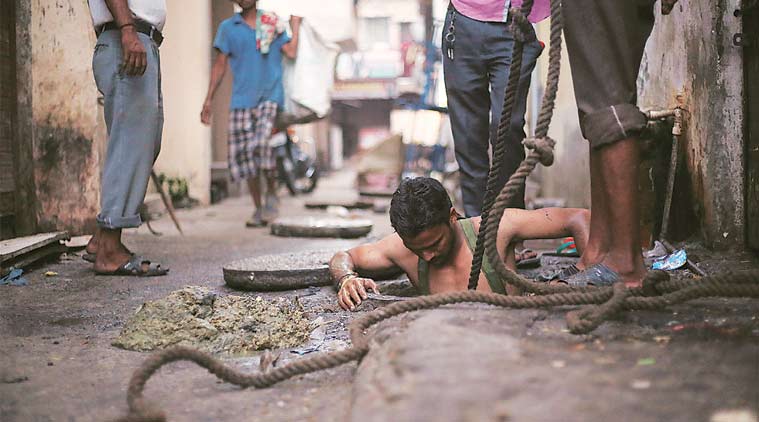
Representation Image
A Bench of Chief Justice Govind Mathur and Justice Ajai Kumar Srivastava has taken cognisance of a Public Interest Litigation (PIL) filed by a group of law students over proper implementation of the Prohibition of Employment as Manual Scavengers and their Rehabilitation Act, 2013.
The Allahabad High Court noted that the petitioners had undertaken a detailed study regarding objective conditions for scavenging in the city of Prayagraj and other areas of the State of Uttar Pradesh. The court further observed that according to the survey, no adequate safety equipment is provided to the scavengers and they are still working manually which is otherwise prohibited under the Act, 2013.
The Bench said, “Having considered all relevant facts of the case, we deem it appropriate to call upon the State of Uttar Pradesh, Nagar Nigam, Prayagraj and Jal Nigam, Prayagraj to respond to the contents of the petition for writ at earliest. Let this petition for writ be listed on 12th April 2021. The respondents shall positively file the response to the petition for writ on or before 9th April 2021 after supplying a copy of the same to either petitioner no. 1 or 2 at the address given.”
The petitioners have also made the following recommendations based on the findings of their study:
1. Technological intervention, like suction machines should be made available to prevent manual scavenging.
2. Training of local bodies or sanitation inspectors about the act, safety procedure, technical knowhow of cleaning devices, should be imparted effectively.
3. Proper awareness program regarding the Act and its effective implementation in the ground should also be made a priority, and sensitisation for the authorities should be done.
4. Monitoring authorities to ensure compensation for the families and penalising the implementation agencies in fault.
5. Comprehensive rehabilitation of the families should be provided. One adult family member of the deceased should be given adequate skill training and an opportunity of employment.
6. Allotment of the due amount of scholarship and that there is effective implementation of the scheme for the children whose parent/s engaged in occupation involving cleaning and prone to health hazards.
7. Appropriate infliction of penalty on those involved in the offence of employing people for the dehumanising practice of manual scavenging.
8. Adequate budget allocation for the implementation of the Scheme for Rehabilitation of Manual Scavengers (SRMS) should be the urgent need of the authority as the budget has reduced drastically over the years.
9. Regulation of sanitation work is needed for – enumeration of sanitation workers, empanelment of private service providers, adoption of standard operating procedures, mechanization of sanitation work, and setting up an Emergency Response Sanitation Unit.
All eight petitioners asserted that the law was enacted to ensure a “dignified life to the lowest rung of the social hierarchy.” They asserted that “the practice of manual scavenging is must to restore human dignity and to abolish dehumanising practice.”
The matter will be heard on April 12.
The order may be read here:
Related:
Municipal officials look other way while manual scavengers still engaged for work: Madras HC
Two manual scavengers die in Chennai, death toll at six for this month alone!
Consider issuing directions for implementing Manual Scavenging Rules: K’taka HC